ETSI’s annual flagship event on Cyber Security, the ETSI Security Conference, will take place from 14 to 17 October 2024, in ETSI, Sophia Antipolis, France.
This exclusive face-to-face event will provide an exceptional opportunity for the security community to come together to exchange with experts, network with peers, and share facts and opinions around the most relevant subjects of cybersecurity standardization. The intensive 4-day programme will gather speakers from government agencies, other standards bodies, academia and various industry sectors.
This year's event will address AI - Impacts of Regulation on Zero Trust and Consumer devices - Societal Impact of Technology- Fraud, Security and Standards Convergence - 5G to 6G - Privacy and Considerations of Employing Encryption Technologies -Transport, Public safety and Critical Communications - Consumer verticals.
Do not to miss this opportunity to Meet and Network with the Community and Register now!
ETSI and the Security Conference Programme Committee Members are delighted to announce the conference programme from 14 till 17 October 2024 in ETSI Premises.
The programme is stable and might still undergo some slight updates.
The conference is a 4 day and in-person event.
Due to limited capacity, only register if you really intend to be physically present.
- Monday 14 October
09.15 - 10:00 Check-in and Welcome Coffee
10.15 Opening Messages
- Alex Leadbeater, ETSI TC Cyber Chair
- Jan Ellsberger, ETSI Director-General
- Anthony Brand, ETSI CMO
10:30 SESSION D1-1: GLOBAL CYBER SECURITY
Chaired by Alex Leadbeater, ETSI TC Cyber Chair, GSMA- 10:30 KEYNOTE SPEECH: AI Security: Present State and Future Directions
Rob van der Veer, Software Improvement Group - 11:00 KEYNOTE SPEECH: The State of SBOM
Allan Friedman, Cybersecurity & Infrastructure Security Agency - 11:30 From eUICC to On-Boarding: The Puzzle of Certification of EU Identity Wallets
Eric Vetillard, ENISA
11:50 Lunch & Networking Break - Posters Visits
13:30 SESSION D1-2: IMPACTS OF REGULATION #1 - Capturing European Values in Technology
Chaired by Björn Fanta, FabasoftThe session will focus on impacts of regulation on products, innovation and technology. It will consider how EU regulation (e.g. AI Act, e-IDAS, RED, CRA, NIS2) and other regional regulations have shaped the global technology landscape. The session will also consider points of friction and gaps between aims of regulation and actual security improvements for products placed on the market.
- 13:30 CERTGRAPH: Applying Knowledge Graphs for Cloud Certification
Stefan Schöberl, Software Competence Center Hagenberg GmbH - 13:50 Estonian Journey Developing and Implementing the National Information Security Framework E-ITS
Mari Seeba, NCSC-EE - 14:10 SBOMs, Asset Management and Vulnerability Management, a Vendor's View
Francois Ambrosini, Huawei - 14:30 Meeting the Challenges of the EUDI Wallet with GlobalPlatform SAM and CSP Specifications
Jean-Daniel Aussel, GlobalPlatform - 14:50 CRA Mapping with EUCC and its Impact on Protection Profiles
Vicente Gonzalez Pedros, ENISA - 15:10 Introducing CYBERSTAND.eu: Supporting EU Experts in Cybersecurity Standardization
Igor Minaev, ETSI
15:25 Coffee & Networking Break - Posters Visits
16:00 SESSION D1-3: AI as a Technology / Platform
Chaired by George Sharkov, European DIGITAL SME Alliance & SBSThe session will consider AI security from the perspective of securing AI as a generic platform capability. The session will discuss the latest challenges, threats, legislation and approaches to providing secure AI.
- 16:00 Adversarial AI in ICT
Piotr Zuraniewski, TNO - 16:20 AI and Impersonation Fraud: Emerging Threats and Countermeasures
Nicole van der Meulen, SURF - 16:40 ETSI's Role in Standardising the Cyber Security of AI
Issy Hall, Department of Science, Innovation and Technology - 17:00 Can Standards Prevent the Existential Threat of AI?
Scott Cadzow, Cadzow Communications Consulting Ltd - 17:20 AI Certification Strategies - Realizing the Potential of the Area
Corina Pascu, ENISA
17:40 - 19:15 Networking Cocktail
- Tuesday 15 October
Day 2 15 October - Opening by Alex Leadbeater, ETSI TC Cyber Chair, GSMA
09: 00 SESSION D2-1: Fraud, Security and Standards Convergence
Chaired by Charles Brookson, ZEATAThis session will explore where standards are being driven by fraud and where fraud is driving standards. The session discusses how security and fraud prevention / detection can work more closely. Focus areas to include; 5G, PSD2, eSignature and e-payments.
- 09:00 Speaker to be confirmed
- 09:20 The Janus Problem – the Challenge of Dealing with Legacy Security Problems While Looking to the Future
David Rogers, Copperhouse - 09:40 The Evolution of Cybersecurity from Governments to Individuals in a 6G, AI-Enabled Hyper-Connected World
Bret Jordan, Afero - 10:00 Joining forces: Cybersecurity and Fraud Management
Peter Allwood, Mastercard - 10:20 Mobile Handset Theft Prevention
Nataliya Stanestky, Google
10:40 Coffee & Networking Break - Posters Visits
11:10 KEYNOTE SPEECH: Impersonation and Psychological Warfare - Protecting the Children
Galina Pildush, Palo Alto Networks11:30 SESSION D2-2 : Societal Impacts of Technology
Chaired by Alex Cadzow, C3LThis session will explore the societal impact of technology on end users and society. Coercive control avoidance, Metaverse, protection of children, disinformation and protection vulnerable citizens will be discussed.
- 11:30 Is eHealth a Reasonable Standardization Goal?
Suno Wood, EP eHealth Chair - 11:50 A Framework for Supporting the Digital Safety of At-Risk Users
Sunny Consolvo, Google - 12:10 Improving Security by Improving Communication with Individual Consumers
Gill Whitney, ANEC
12:30 Networking Lunch - Posters Visits
14:00 SESSION D2-3 : Consumer Verticals
Chaired by Hollie Ennessy, OmdiaThe session will explore latest security best practice, challenges and gaps for consumer IoT and other smart devices.
- 14:00 CMDPP Evolution Toward EUCC and CRA
Davide Pratone, Huawei - 14:20 RED Cybersecurity Conformity Assessment Approach and Challenges
Angelo D’Amato, UL Solutions - 14:40 How Global Standardization Efforts are Expanding eSIM Benefits for the Consumer IoT
Bertrand Moussel, Trusted Connectivity Alliance - 15:00 Navigating the Dynamic Landscape of Cybersecurity Legislations, Standards, and Regulations for Embedded Devices (from a provider of measurement instrument perspective)
Kaustabh Bebbarman, LAAVAT - 15:20 VDP Accessibility in Consumer IoT
Cedric Levy-Bencheton, Cetome
15:40 Tea & Networking Break - Posters Visits
16:15 SESSION D2-4: Societal Impacts of Technology
Chaired by Nataliya Stanestky, Google- 16:15 Spotlighting Consumer IoT Enabled Coercive Control
Joanne Walker, BT Group - 16:35 Age Verification the Stakeholders, Solutions, and Standards Landscape
Alex Cadzow, Cadzow Communications Consulting Ltd - 16:55 Is It Trustworthy Enough? Considering Societal Impact in Public Safety Technologies
Katrina Petersen, Public Safety Communication Europe
17:15 Session D2-5: PANEL DISCUSSION: Societal Impacts of Technology
Chaired by Galina Pildush Palo AltoPanel in construction
18:00 - 19:15 - Networking Drink
- Wednesday 16 October
Day 3 - 16 October - Opening by Alex Leadbeater, ETSI TC Cyber Chair, GSMA
09:00 KEYNOTE SPEECH: The NIST PQC Standards
Dustin Moody, NIST09:20 Session D3-1: Quantum Safe Cryptography
Chaired by Colin Whorlow, NCSCThe session will explore latest developments in quantum algorithm selection, migration strategy, best practice, agility and other cryptography.
- 09:20 Presentation Title to be confirmed
Stephan Ehlen, BSI - 09:40 ANSSI Views on Post-Quantum Cryptography Transition
Samih Souissi, ANSSI - 10:00 Overview of ETSI ISG QKD
Martin Ward, ISG QKD Chair, Toshiba - 10:20 ETSI Cyber QSC Update
Matt Campagna, Cyber QSC Chair, AWS
10:40 Coffee and Networking - Posters Visit
11:10 SESSION D3-2: Quantum Safe Cryptography
Chaired by Matt Campagna, AWS- 11:10 Staying Ahead of the Quantum Threat – Starting with Hardware
Thalia Laing, HP Security Lab - 11:30 Early Experiences Implementing Quantum-Resistant Cryptography for Embedded and Kernel Use Cases
Daniel Pouzzner, WolfSSL - 11:50 Futureproofing Data Security with Quantum-Resistant Algorithms
Glen Leonhard, CryptoMathic
12:10 - 13:00 SESSION D3-3 : PANEL DISCUSSION in construction
13:00 Lunch & Networking - Posters Visit
14:15 SESSION D3-4: Impact of Regulation #2 – Trust and Privacy
Chaired by Scott Cadzow, C3LThe session will explore latest developments, regulatory landscape and best practice for trust establishment and privacy.
- 14:15 Verify Before Use - the Role of ETSI's ISG ETI
Speaker to be confirmed - 14:35 Enhancing Zero Trust and Consumer Device Security through TCG Standards and Regulatory Compliance
Thorsten Stremlau, Trusted Computing Group - 14:55 Navigating Trust and Data Privacy Contradictions in the Age of Autonomous Cars
Francesca Bassi, IRT Systemx
15:15 Coffee & Networking - Posters Visit
15:45 SESSION D3-5: 5G to 6G Evolution or Revolution?
Chaired by Alex Leadbeater, TC Cyber Chair, GSMAIn early 2024 3GPP, ETSI and GSMA started the multi-year process of developing standards for 6G. While 6G won’t reach the market until ~2030, 2024 to 2026 will be the key years in which 6G architecture is standardized. This session will explore 6G challenges and opportunities from a security perspective.
- 15:45 A Vision for Communications (6G)
Laurence Wayne, BT - 16:05 CONFIDENTIAL6G: Confidential Computing and Privacy-Preserving Technologies for 6G
Vera Stavroulaki, WINGS ICT Solutions - 16:25 Bridging the Gap: XAI's Contribution to B5G and 6G Network Security
Madhusanka Debbarman, University College Dublin - 16:45 Digital Identity for Next Generation Telecommunication Networks
Jintao Zhu, Huawei - 17:05 Cyber Security Best Practices with Energy Efficiency
Nicolas Stricher, Check Point Software - 17:25 Threats and Risks of 5G Networks for Military Applications
Jordi Mongay Batalla, Warsaw University of Technology
17:45 Day 3 Networking Drink
- 09:20 Presentation Title to be confirmed
- Thursday 17 October
Day 4 Opening by Alex Leadbeater, ETSI TC Cyber Chair, GSMA
09:00 SESSION D4-1: Impacts of Regulation #3 - Consumer Devices
Chaired by Slawomir Gorniak, ENISAThe session will explore impacts of regulation on consumer products and devices. The session will explore successes, failures, best practices, and gaps. Focus areas to include IoT and automotive. (session in construction)
- Industry Update from CSA IoT Security Certification
Jorge Wallace Ruiz, Dekra - Building Trust in IoT: A Comprehensive Cybersecurity Certification Framework based on ETSI EN 303 645
Roland Atoui, Red Alert Labs - Navigating the Complex Landscape of IoT Security Regulations
Zahra Khani, Keysight Technologies - Providing Best User Experience with Intelligent & Connected Car Cockpits While Complying with Cybersecurity Regulations
Francois Fischer, Huawei Technologies R&D
10:40 Coffee & Networking - Posters Visits
11:10 Session D4-2 : AI “Verticals” / End Applications
Chaired by George Sharkov, European DIGITAL SME Alliance & SBSThe session will consider AI security from the perspective of securing AI as deployed in specific vertical applications. The session will discuss latest challenges, threats, legislation and approaches to implementing AI in specific vertical / end applications.
- 11:10 Enhancing B5G/6G Network Security with Federated Learning in O-RAN
Ioannis Makris, MetaMind Innovations IKE - 11:30 Protecting AI Systems from Emerging Threats: Guiding Principles and Strategies
Jayabalaji Sathiyamoorthi, Intel - 11:50 Navigating AI Security in 6G: MNO Perspective to Emerging Threats and Regulations
Buse Bilgin, Turkcell Technology
12:10 Sandwich Lunch & Networking - Posters Visits
13:30 SESSION D4-3: Transport, Public safety and Critical Communications
Chaired by Charles Brookson, Zeata
The session will explore security for Transport, Public Safety, Critical Industries and Critical Communications. Topics to include; Tetra replacement, FRMCS Rail, 3GPP SA6 work.- 13:30 BroadEU.Net : Realising the EU Critical Communication System (EUCCS)
David Lund, Public Safety Communication Europe (PSCE) Forum - 13:50 FRMCS
Speaker to be confirmed - 14:10 TETRA
Brian Murgatroyd
14:30 PANEL DISCUSSION : ETSI Priorities for Security - Next Steps
Chaired by Alex Leadbeater with the Programme Committee membersPanel in construction
15:30 Close of the Conference
- Industry Update from CSA IoT Security Certification
Venue:
ETSI Headquarters
650 Route des Lucioles
06560 Valbonne - Sophia Antipolis
FRANCE
Tel: +33 4 92 94 42 00
Information on venue, travel, visa, local accommodation is available at www.etsi.org/events/find-us
- Adversarial AI in ICT
TNO - Piotr Zuraniewski - Safeguarding AI: Key Strategies Against Emerging Threats
Intel - jayabalaji.sathiyamoorthi - CyberPass | Elevate Your Cybersecurity Procurement with ETSI EN 303 645
Red Alert Labs Roland Atoui - DYNABIC: Dynamic Business Continuity and Response of Critical Systems against advanced cyber-physical threats
University Côte d'Azur - Nicolas Ferry - ROBUST-6G: Smart, Automated, and Reliable Security Service Platform for 6G
University College Dublin - Madhusanka Liyanage - Enhanced Cybersecurity Through Integrative Open Source Technology: OpenVAS, OpenKAT, and Aranei in Pharma and Healthcare
OpenNovations - Hans de Raad - Recording-Proof Encryption for Quantum Networks
CyberRidge - Eyal Felstaine - Securing 6G Networks in the Quantum Era
Turkcell - Zehra Yigit - Application of Homomorphic Encryption in Private IP Search over Encrypted Database
Centre For Development Of Telematics - Ranjan Sameer - Integrating Network Digital Twinning into Future AI-based 6G Systems (6G-TWIN, SNS JU
Regis Decorme, R2M
 Peter Allwood leads growth for Mastercard’s cybersecurity business, which provides commercial cybersecurity products and services to customers globally, protecting both payments and the broader digital ecosystem. He is responsible for strategic diversification of our cybersecurity capabilities and advancing our vision to empower a secure digital future for everyone, by driving continuous improvement of global cybersecurity and trust across the digital ecosystem. Prior to joining Mastercard, he held leadership positions in Deloitte and Accenture’s cybersecurity practices, having earlier started his career in UK national security. He regularly participates in future technology research, including recently working with the World Economic Forum on securing the Metaverse and IoT. He holds certifications including CISSP and CISM; and has a bachelor's degree in Computer Science from the University of Essex.
Peter Allwood leads growth for Mastercard’s cybersecurity business, which provides commercial cybersecurity products and services to customers globally, protecting both payments and the broader digital ecosystem. He is responsible for strategic diversification of our cybersecurity capabilities and advancing our vision to empower a secure digital future for everyone, by driving continuous improvement of global cybersecurity and trust across the digital ecosystem. Prior to joining Mastercard, he held leadership positions in Deloitte and Accenture’s cybersecurity practices, having earlier started his career in UK national security. He regularly participates in future technology research, including recently working with the World Economic Forum on securing the Metaverse and IoT. He holds certifications including CISSP and CISM; and has a bachelor's degree in Computer Science from the University of Essex.
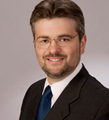 François Ambrosini is Responsible Disclosure and Vulnerability Management Evangelist at Huawei and represents Huawei PSIRT in Europe. He obtained his engineering degree in electronics and signal processing combined with a master's degree in computer networks and telecommunications from ENSEEIHT, Toulouse, France, in 2003. He was involved with radio technology development at Sagem Défence & Sécurité and later in the standardisation of mobile TV systems at Motorola, and consulted on security both independently and for umlaut communications. His activities have spanned several domains including IoT security, reconfigurable radio systems security, practical use of attribute-based cryptography and of language-theoretic security, and the development of several standards serving the private and public sectors as well as the EU legislation.
François Ambrosini is Responsible Disclosure and Vulnerability Management Evangelist at Huawei and represents Huawei PSIRT in Europe. He obtained his engineering degree in electronics and signal processing combined with a master's degree in computer networks and telecommunications from ENSEEIHT, Toulouse, France, in 2003. He was involved with radio technology development at Sagem Défence & Sécurité and later in the standardisation of mobile TV systems at Motorola, and consulted on security both independently and for umlaut communications. His activities have spanned several domains including IoT security, reconfigurable radio systems security, practical use of attribute-based cryptography and of language-theoretic security, and the development of several standards serving the private and public sectors as well as the EU legislation.
Roland Atoui, Red Alert Labs Managing Director & Founder, a Cybersecurity Certification expert with more than 15 years of recognized achievements in both research and industry. From smart cards up to cloud services. Roland is a new technology enthusiast with a current mission to bring trust to the IoT. Roland has achieved a series of world-first publications, evaluations of new products and services. He is a recognized certification expert and represents the French delegation in ESO and ISO activities. He is behind the development and/or a main contributor to several ICT/IoT certification schemes and standards such as EUCC, FIDO, FDO, Eurosmart IoT, IoTSF and ioXtAlliance. Finally, Roland is awarded TOP 100 worldwide IoT influencers by IoTOne for the past 2 years.
 Jean-Daniel Aussel is Chair of the eID Wallet Task Force at GlobalPlatform, and Head of Standardization at Thales Digital Identity and Security where he is responsible for driving the standardization strategy for all market segments. A long-standing active participant in standardization, he has contributed to several standard organizations for many market segment related to security.
Jean-Daniel Aussel is Chair of the eID Wallet Task Force at GlobalPlatform, and Head of Standardization at Thales Digital Identity and Security where he is responsible for driving the standardization strategy for all market segments. A long-standing active participant in standardization, he has contributed to several standard organizations for many market segment related to security.
 Buse Bilgin, Turckcell Technology, is an accomplished Next Generation R&D Engineer based in Istanbul, Turkiye, specializing in Electrical & Electronics Engineering with a focus on 5G and 6G technologies. With a Master's degree from Koç University and a Bachelor's degree from Istanbul Bilgi University, Buse has excelled academically and professionally. At Turkcell Technology, she plays a pivotal role in managing EU projects related to next-generation wireless technologies. As a co-founder and ML-Engineer at Vrables Lab, she contributed to the development of advanced photonic-based diagnostic platforms and received a prestigious TUBITAK BiGG grant. Recognized for her work with awards like the KUImpact Patent Competition 2022, Buse is also a passionate advocate for engineering excellence and innovation. She is one of the main researchers focusing on the development of network’s digital twin in Turkcell.
Buse Bilgin, Turckcell Technology, is an accomplished Next Generation R&D Engineer based in Istanbul, Turkiye, specializing in Electrical & Electronics Engineering with a focus on 5G and 6G technologies. With a Master's degree from Koç University and a Bachelor's degree from Istanbul Bilgi University, Buse has excelled academically and professionally. At Turkcell Technology, she plays a pivotal role in managing EU projects related to next-generation wireless technologies. As a co-founder and ML-Engineer at Vrables Lab, she contributed to the development of advanced photonic-based diagnostic platforms and received a prestigious TUBITAK BiGG grant. Recognized for her work with awards like the KUImpact Patent Competition 2022, Buse is also a passionate advocate for engineering excellence and innovation. She is one of the main researchers focusing on the development of network’s digital twin in Turkcell.
 Charles Brookson, OBE CEng FIET FRSA.- - Member of the Programme Committee
Charles Brookson, OBE CEng FIET FRSA.- - Member of the Programme Committee
Charles was at the United Kingdom Government for twelve years and is an Electronic Engineer. He was Head of Security for the UK mobile operator and was in British Telecom for twenty years. He has worked in many security areas over the last 40 years, including Cryptographic systems, secure designs, policies, auditing, and mobile radio for over 40 years. He now runs his own Company Zeata Security Ltd and is a Director of Azenby and Floor51 Ltd. He was Chairman of the GSM Association Security Group for 25 years. He was within GSM and 3GPP security standards, chairing the Algorithm Expert Group in 1986, which helped define GSM Security. He also helped to define Public Key Standards and ISO 27000 Standards. He was the first Chairman of the ETSI TC CYBER, then the Vice Chairman. He was awarded an OBE for services to Telecommunications Security in 2015.
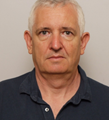 Scott Cadzow, Cadzow Communications Consulting - - Member of the Programme Committee
Scott Cadzow, Cadzow Communications Consulting - - Member of the Programme Committee
Appointed as an ETSI Fellow in 2023 Scott has a number of years of experience in standardisation at ETSI. Whilst often focussing on security it is in the application of security across technologies that are the standout characteristic of his career. In domains including eHealth and ITS, in AI and in the integration of transparency and applicability in the use of security technologies, that ensure ETSI is able to address the societal role of security and privacy in ICT, Scott has along the way helped to provide guidance and standards to solve problems.
 Alex Cadzow, Cadzow Communications Consulting - - Member of the Programme Committee
Alex Cadzow, Cadzow Communications Consulting - - Member of the Programme Committee
Alex's aim is to take an active role, through research and education, to bridge the gap between technology and the human user. This has been built up through a background in Anthropology and Forensic science and latterly into the human aspects of cybersecurity. His role in Cadzow Communications Consulting (C3L) as researcher and co-developer of contributions to the company’s work in standards and other projects. While his background may seem an unlikely fit to cybersecurity which is often technology focused in systems engineering approach it is vital to equally address and integrate these three key elements: hardware, software and human systems integration. Therefore, the human element is something that integration and systems engineering processes must address. The definition of “system” used by NASA is inclusive; i.e., a system is “the combination of elements that function together to produce the capability required to meet a need. The elements include all hardware, software, equipment, facilities, personnel, processes and procedures needed for this purpose
 Matthew Campagna, Amazon Web Services - Member of the Programme Committee
Matthew Campagna, Amazon Web Services - Member of the Programme Committee
Matthew Campagna is a Sr. Principal Engineer & Cryptographer for Amazon Web Services Inc.’s. He oversees the design and analysis of cryptographic solutions across AWS. He is a member of the ETSI Security Algorithms Group Experts (SAGE), and Chairman of ETSI TC CYBER’s Quantum Safe Cryptography group. Previously he managed Certicom/BlackBerry’s Cryptography Research Group focused on the development of intellectual property and standardization for elliptic curve cryptography. He holds a doctorate in Mathematics from Wesleyan University.
 Sunny Consolvo is a researcher at Google where she spends most of her time studying privacy, safety, and security topics. For nearly 10 years, her research has been focused on understanding the experiences and needs of people who are at higher risk of experiencing technology-facilitated abuse or suffering disproportionate harm from such abuse — that is, “at-risk users” — in an effort to help improve their digital safety. Dr. Consolvo has been a regular contributor to the academic literature, co-authoring more than 70 papers and articles in peer-reviewed venues. She was inducted into the ACM's SIGCHI Academy in 2020, and she is serving her final term as Chair of the SIGCHI Academy Award subcommittee. Dr. Consolvo received her Ph.D. in Information Science from the University of Washington. She is a Certified Information Privacy Professional (US), and a member of the Editorial Board for IEEE Security & Privacy magazine.
Sunny Consolvo is a researcher at Google where she spends most of her time studying privacy, safety, and security topics. For nearly 10 years, her research has been focused on understanding the experiences and needs of people who are at higher risk of experiencing technology-facilitated abuse or suffering disproportionate harm from such abuse — that is, “at-risk users” — in an effort to help improve their digital safety. Dr. Consolvo has been a regular contributor to the academic literature, co-authoring more than 70 papers and articles in peer-reviewed venues. She was inducted into the ACM's SIGCHI Academy in 2020, and she is serving her final term as Chair of the SIGCHI Academy Award subcommittee. Dr. Consolvo received her Ph.D. in Information Science from the University of Washington. She is a Certified Information Privacy Professional (US), and a member of the Editorial Board for IEEE Security & Privacy magazine.
 Angelo D’Amato is a cybersecurity expert with over a decade of experience across different sectors and international cybersecurity organizations. His main area of expertise relates to complex end-to-end cybersecurity assessments and certifications/compliance, e.g., UL 2900*, ETSI EN 303 645, and Common Criteria. Angelo collaborates with IoT manufacturers through his current role at UL Solutions as Lead Principal. He leverages his deep expertise to advance cybersecurity practices and contribute to developing industry standards. In addition, he is also a member of the TIC Council (Testing Inspection and Certification) CACD Working Group related to RED DA 2022/30 and EU CRA’s Proposal and NEN's National Expert on security & privacy, CEN/CLC JTC 13/WG 8 (RED) and WG9 (CRA).
Angelo D’Amato is a cybersecurity expert with over a decade of experience across different sectors and international cybersecurity organizations. His main area of expertise relates to complex end-to-end cybersecurity assessments and certifications/compliance, e.g., UL 2900*, ETSI EN 303 645, and Common Criteria. Angelo collaborates with IoT manufacturers through his current role at UL Solutions as Lead Principal. He leverages his deep expertise to advance cybersecurity practices and contribute to developing industry standards. In addition, he is also a member of the TIC Council (Testing Inspection and Certification) CACD Working Group related to RED DA 2022/30 and EU CRA’s Proposal and NEN's National Expert on security & privacy, CEN/CLC JTC 13/WG 8 (RED) and WG9 (CRA).
Kaustabh Debbarman, LAAVAT
In 2017, as digital transformation wave was reshaping the world, Kaustabh Debbarman embarked on a new journey with LAAVAT. Leveraging his vast experience in spearheading the development of solutions that safeguarded hundreds of millions of smart and connected devices at Nokia and Microsoft, he aimed to utilize this expertise to assist businesses in mitigating cybersecurity risks in an increasingly connected world. LAAVAT, a Finland-based company, specializes in embedded device security. It assists manufacturers of controllers, IoT gateways, and sensors in building devices that adhere to industry-leading security standards such as IEC 62443. Kaustabh’s vision is to position LAAVAT as the preferred choice for customers seeking robust security solutions for their embedded devices. Simultaneously, he is committed to fostering a positive and rewarding work culture for the team at LAAVAT.
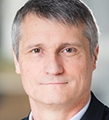 Francois Fischer, Huawei
Francois Fischer, Huawei
François holds a Master of Engineering in Electrotechnics and informatics. He worked 6 Years as developer at Siemens Germany for Multiprotocol’s telecommunications systems. He then worked in ETSI specialist Task forces for supporting development of ETSI standards and organising Open Plugtests events, including Cooperative ITS Plugtests. He worked 10 Years at ERTICO where he was coordinator of flagship Connected Automated Mobility H2020 project using IoT (AUTOPILOT) and 5G (5G-MOBIX). He joined Huawei standardisation and Industry department in 2020 as expert leader for Smart Travel product lines, addressing standardisation and regulation issues, as well as supporting research and innovation.
 Dr. Allan Friedman is a Senior Technical Advisor and Strategist at the Cybersecurity and Infrastructure Security Agency in the US Government. He coordinates the global cross-sector community efforts around software bill of materials (SBOM), and works to advance the adoption of supply chain transparency and related security issues around the world. He was previously the Director of Cybersecurity Initiatives at NTIA, leading pioneering work on cybersecurity, including running the first public government-led collaboration on coordinated vulnerability disclosure. Prior to joining the Federal government, Friedman spent over a decade as a noted information security and technology policy scholar at Harvard's Computer Science department, the Brookings Institution, and George Washington University's Engineering School. He is the co-author of the popular text "Cybersecurity and Cyberwar: What Everyone Needs to Know," has a degree in computer science from Swarthmore College and a PhD from Harvard University.
Dr. Allan Friedman is a Senior Technical Advisor and Strategist at the Cybersecurity and Infrastructure Security Agency in the US Government. He coordinates the global cross-sector community efforts around software bill of materials (SBOM), and works to advance the adoption of supply chain transparency and related security issues around the world. He was previously the Director of Cybersecurity Initiatives at NTIA, leading pioneering work on cybersecurity, including running the first public government-led collaboration on coordinated vulnerability disclosure. Prior to joining the Federal government, Friedman spent over a decade as a noted information security and technology policy scholar at Harvard's Computer Science department, the Brookings Institution, and George Washington University's Engineering School. He is the co-author of the popular text "Cybersecurity and Cyberwar: What Everyone Needs to Know," has a degree in computer science from Swarthmore College and a PhD from Harvard University.
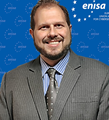 Vicente Gonzalez joined the Market, Certification and Standardisation Unit of EU Agency for Cybersecurity in March 2021, and also is part of the Research and innovation team. He is currently the Chair of ENISA Thematic Group for Vulnerability Handling on Certified Solutions. Prior joining ENISA he worked for 17 years for a state-owned company property of the Spanish Ministry of Defence – ISDEFE. Vicente holds multiple Cybersecurity certifications, CISSP, CISM, CISA and ETH.
Vicente Gonzalez joined the Market, Certification and Standardisation Unit of EU Agency for Cybersecurity in March 2021, and also is part of the Research and innovation team. He is currently the Chair of ENISA Thematic Group for Vulnerability Handling on Certified Solutions. Prior joining ENISA he worked for 17 years for a state-owned company property of the Spanish Ministry of Defence – ISDEFE. Vicente holds multiple Cybersecurity certifications, CISSP, CISM, CISA and ETH.
Issy Hall leads DSIT's work on emerging technology cyber standards, including AI. She has been involved in standards development for the past three years through her role within DSIT and previously within the New Zealand government.
 Bret Jordan - For over 30 years I have been fortunate to work on some of the hardest problems and most advanced technologies and solutions that protect our way of life. I have led several initiatives to drive innovation, created new technologies, managed very large projects and teams, and designed automated and collaborative cyber threat intelligence and mitigation/remediation solutions across the industry. I am currently Chief Security Strategist at Afero. Prior to Afero I was CTO of Emerging Technologies for Broadcom. Prior to that I held leadership positions at Symantec, Blue Coat Systems, Solera Networks, and several other startups, enterprises, and nonprofits. I have also led several international standards including STIX, TAXII, CACAO, and OpenC2 and have presented numerous times at international conferences.
Bret Jordan - For over 30 years I have been fortunate to work on some of the hardest problems and most advanced technologies and solutions that protect our way of life. I have led several initiatives to drive innovation, created new technologies, managed very large projects and teams, and designed automated and collaborative cyber threat intelligence and mitigation/remediation solutions across the industry. I am currently Chief Security Strategist at Afero. Prior to Afero I was CTO of Emerging Technologies for Broadcom. Prior to that I held leadership positions at Symantec, Blue Coat Systems, Solera Networks, and several other startups, enterprises, and nonprofits. I have also led several international standards including STIX, TAXII, CACAO, and OpenC2 and have presented numerous times at international conferences.
 Thalia Laing is a Principal Cryptographer and Security Researcher in the HP Security Lab. Her role includes driving the research and application of advanced cryptographic primitives and mechanisms in the design and architecture of security solutions for HP. She has established herself as a leading authority across the business for the design and review of critical cryptographic functionality and has led cross-company efforts around educating the engineering community on the safe and effective use of modern cryptography standards and techniques. She is currently working on HP’s migration to Post Quantum Cryptography, which recently culminated in HP launching the world’s first Business PCs to protect firmware against quantum computer hacks. Prior to joining HP, Thalia Laing completed a BSc in Mathematics at Imperial College, London, then moved to Royal Holloway University of London to complete an MSc in ‘Mathematics of Communications and Cryptography’. After finishing with a distinction, Thalia then joined the Centre for Doctoral Training (CDT) in Cyber Security, hosted by the Information Security Group (ISG) at Royal Holloway, to complete her PhD.
Thalia Laing is a Principal Cryptographer and Security Researcher in the HP Security Lab. Her role includes driving the research and application of advanced cryptographic primitives and mechanisms in the design and architecture of security solutions for HP. She has established herself as a leading authority across the business for the design and review of critical cryptographic functionality and has led cross-company efforts around educating the engineering community on the safe and effective use of modern cryptography standards and techniques. She is currently working on HP’s migration to Post Quantum Cryptography, which recently culminated in HP launching the world’s first Business PCs to protect firmware against quantum computer hacks. Prior to joining HP, Thalia Laing completed a BSc in Mathematics at Imperial College, London, then moved to Royal Holloway University of London to complete an MSc in ‘Mathematics of Communications and Cryptography’. After finishing with a distinction, Thalia then joined the Centre for Doctoral Training (CDT) in Cyber Security, hosted by the Information Security Group (ISG) at Royal Holloway, to complete her PhD.
 Glen Leonhard, Cryptomathic
Glen Leonhard, Cryptomathic
With nearly 20 years in the Cryptography and Data Security industry, Glen Leonhard is an experienced cryptography master. Over the last decade alone, Glen has worked with product development and service offerings within the security space and has delivered best in class security solutions for enterprise businesses. In his current role as Director of Key Management at Cryptomathic, Glen is responsible for the global business strategy of cryptographic key management, collaborating closely with customers and partners to constantly explore new opportunities for addressing current and future challenges. Glen has an engineering background from the Technical University of Denmark where he studied Information Technology, and previously held roles at Nokia and Prevas AB.
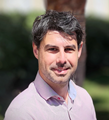 Cédric Lévy-Bencheton is the CEO and founder of cetome, an independent advisory in IoT cyber security. Cédric works with manufacturers to secure their products in line with standards and regulations. Previously, Cédric worked at ENISA, the European Union Cyber Security Agency, where he created the IoT cyber security domain.
Cédric Lévy-Bencheton is the CEO and founder of cetome, an independent advisory in IoT cyber security. Cédric works with manufacturers to secure their products in line with standards and regulations. Previously, Cédric worked at ENISA, the European Union Cyber Security Agency, where he created the IoT cyber security domain.
 Madhusanka Liyanage is an Associate Professor/Ad Astra Fellow and Director of Graduate Research at the School of Computer Science, University College Dublin, Ireland. He also leads the Network Softwarization and Security Labs (NetsLab) group at the UCD School of Computer Science. He is also an expert consultant at the European Union Agency for Cybersecurity (ENISA) and a Funded Investigator of the SFI CONNECT Research Centre, Ireland. In 2020, he received the "2020 IEEE ComSoc Outstanding Young Researcher" award by IEEE ComSoc EMEA. In 2021, 2022 and 2023, he was ranked among the world's top 2% of scientists. He is currently PI for several EU projects, i.e. H2020 SPATIAL, 6G SNS Confidential-6G, 6G SNS Robust-6G, and 6G SNS Fidal-5G:MBBPT. He is also the coordinator of the Marie-curie Staff Exchange ENSURE 6G project. His Research Interests 5G/6G security, Blockchain, Explainable AI and Federated Learning security. More info: https://www.madhusanka.com/
Madhusanka Liyanage is an Associate Professor/Ad Astra Fellow and Director of Graduate Research at the School of Computer Science, University College Dublin, Ireland. He also leads the Network Softwarization and Security Labs (NetsLab) group at the UCD School of Computer Science. He is also an expert consultant at the European Union Agency for Cybersecurity (ENISA) and a Funded Investigator of the SFI CONNECT Research Centre, Ireland. In 2020, he received the "2020 IEEE ComSoc Outstanding Young Researcher" award by IEEE ComSoc EMEA. In 2021, 2022 and 2023, he was ranked among the world's top 2% of scientists. He is currently PI for several EU projects, i.e. H2020 SPATIAL, 6G SNS Confidential-6G, 6G SNS Robust-6G, and 6G SNS Fidal-5G:MBBPT. He is also the coordinator of the Marie-curie Staff Exchange ENSURE 6G project. His Research Interests 5G/6G security, Blockchain, Explainable AI and Federated Learning security. More info: https://www.madhusanka.com/
 David Lund is currently President of Public Safety Communication Europe, and a member since 2013. David is also Board Member of the 6G Infrastructure Association (6G-IA) since March 2021, contributing to the continued innovation in Smart Networks and Services (SNS-JU). He currently coordinates the BroadEU.net programme, a partnership of 16+ EU governments/agencies supporting the technological development towards the EU critical communication system, EUCCS. This builds upon the success of the BroadWay Pre-Commercial Procurement (PCP). David has a 25+ year research and innovation background that maintains a leading-edge capability in Cyber Security and Resilient Communications; the core fundamental factors required to achieve Trustworthy Communication. David gained a PhD in Communication Systems in 2001, specialising in Information Theory; the mathematical foundation of Coding (Error Control) and Cryptography.
David Lund is currently President of Public Safety Communication Europe, and a member since 2013. David is also Board Member of the 6G Infrastructure Association (6G-IA) since March 2021, contributing to the continued innovation in Smart Networks and Services (SNS-JU). He currently coordinates the BroadEU.net programme, a partnership of 16+ EU governments/agencies supporting the technological development towards the EU critical communication system, EUCCS. This builds upon the success of the BroadWay Pre-Commercial Procurement (PCP). David has a 25+ year research and innovation background that maintains a leading-edge capability in Cyber Security and Resilient Communications; the core fundamental factors required to achieve Trustworthy Communication. David gained a PhD in Communication Systems in 2001, specialising in Information Theory; the mathematical foundation of Coding (Error Control) and Cryptography.
 Ioannis Makris, MetaMind Innovations IKE - Ioannis received his BSc in Computer Science with specialization in Artificial Intelligence and Software Engineering from the Aristotle University of Thessaloniki (AUTh) and his MSc in Business Analytics from the University of Edinburgh. Furthermore, he is a Certified Associate in Project Management® (CAPM®) by the Project Management Institute (PMI). His interests include privacy-preserving AI techniques, interpretable machine learning, and security. He is currently employed by MetaMind Innovations, working as an AI Engineer/Researcher in several European-funded projects on cybersecurity, telecommunications, and energy efficiency.
Ioannis Makris, MetaMind Innovations IKE - Ioannis received his BSc in Computer Science with specialization in Artificial Intelligence and Software Engineering from the Aristotle University of Thessaloniki (AUTh) and his MSc in Business Analytics from the University of Edinburgh. Furthermore, he is a Certified Associate in Project Management® (CAPM®) by the Project Management Institute (PMI). His interests include privacy-preserving AI techniques, interpretable machine learning, and security. He is currently employed by MetaMind Innovations, working as an AI Engineer/Researcher in several European-funded projects on cybersecurity, telecommunications, and energy efficiency.
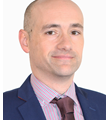 Jordi Mongay Batalla is a Professor at Warsaw University of Technology. He is a 20+ years expert in cybersecurity and telecommunications. Jordi Mongay is an adviser in different international institutions. He is a 5G Security expert in NATO Science and Technology Organisation, has been a cybersecurity expert of the Polish Telco Regulator and a technical adviser of the Polish Ministry of Infrastructure for autonomous automotive. Prof. Mongay Batalla has been contracted by ENISA (EU Cybersecurity Agency) as an individual external expert of 5G cybersecurity through Call for Expressions of Interest from 2019 to 2023. His research interest focuses mainly on Cybersecurity, IP Technologies (radio: 5G and 6G, core: Network services chain, SDN, AI) and Applications (Internet of Things, Smart Cities, multimedia) for the Future Internet. He is a member of the O-RAN Alliance Security Working Group (WG11) and the Polish Normalization Committee and a committee member of standardisation CEN/CLC/JTC 13/WG9.
Jordi Mongay Batalla is a Professor at Warsaw University of Technology. He is a 20+ years expert in cybersecurity and telecommunications. Jordi Mongay is an adviser in different international institutions. He is a 5G Security expert in NATO Science and Technology Organisation, has been a cybersecurity expert of the Polish Telco Regulator and a technical adviser of the Polish Ministry of Infrastructure for autonomous automotive. Prof. Mongay Batalla has been contracted by ENISA (EU Cybersecurity Agency) as an individual external expert of 5G cybersecurity through Call for Expressions of Interest from 2019 to 2023. His research interest focuses mainly on Cybersecurity, IP Technologies (radio: 5G and 6G, core: Network services chain, SDN, AI) and Applications (Internet of Things, Smart Cities, multimedia) for the Future Internet. He is a member of the O-RAN Alliance Security Working Group (WG11) and the Polish Normalization Committee and a committee member of standardisation CEN/CLC/JTC 13/WG9.
 Dustin Moody is a mathematician in the NIST Computer Security Division. Dustin leads the post-quantum cryptography project at NIST. He received his Ph.D. from the University of Washington in 2009. His area of research deals with elliptic curves and their applications in cryptography. With the looming threat of quantum computers being able to break public-key cryptosystems, the National Institute of Standards and Technology (NIST) has led a multi-year effort to create new standards. These standards for public-key digital signatures and key-establishment algorithms will provide protection against future quantum threats. In this talk, I will give an update on the NIST post-quantum cryptography standardization project, including the recently published FIPS, as well as ongoing and future work.
Dustin Moody is a mathematician in the NIST Computer Security Division. Dustin leads the post-quantum cryptography project at NIST. He received his Ph.D. from the University of Washington in 2009. His area of research deals with elliptic curves and their applications in cryptography. With the looming threat of quantum computers being able to break public-key cryptosystems, the National Institute of Standards and Technology (NIST) has led a multi-year effort to create new standards. These standards for public-key digital signatures and key-establishment algorithms will provide protection against future quantum threats. In this talk, I will give an update on the NIST post-quantum cryptography standardization project, including the recently published FIPS, as well as ongoing and future work.
 Bertrand Moussel, Trusted Connectivity Alliance - Since May 2016, Bertrand has held the position of R&D Director Smartcard & Platforms, VALID. He started his career in the semiconductor industry with Product Marketing positions at ST and Texas-Instruments. He later joined Gemplus, where he managed Latin American operations for ten years, and Oberthur Technologies. Bertrand then took up a position as CEO at Avilinks, before joining Inside Secure in 2006, and then Dictao, later acquired by IDEMIA.
Bertrand Moussel, Trusted Connectivity Alliance - Since May 2016, Bertrand has held the position of R&D Director Smartcard & Platforms, VALID. He started his career in the semiconductor industry with Product Marketing positions at ST and Texas-Instruments. He later joined Gemplus, where he managed Latin American operations for ten years, and Oberthur Technologies. Bertrand then took up a position as CEO at Avilinks, before joining Inside Secure in 2006, and then Dictao, later acquired by IDEMIA.
 Ms. Corina Pascu - At present cybersecurity expert with European Union Agency for Cybersecurity (ENISA) where she has worked on EU certification schemes (preparation of the EU5G certification scheme, certification strategies for AI), advising ECCC on cyber research and innovation needs and priorities and cybersecurity market analyses (cloud computing and cryptographic products and services). Previously with European Commission DG Research and Innovation, Directorate Research and Innovation Outreach, where she worked on the formulation of European Open Science policies & European Open Science Cloud EOSC, International Cooperation and Open Science diplomacy. Also with DG Joint Research Centre on Sevilla site, EU’s Science Hub, on policy analysis, advice and support on the social and economic implications of ICTs and digital innovations in society and digital economy. Extensive international and multicultural exposure, analytical mind forged in think tanks and international expert panels, and seasoned speaker. Professional experience includes over 20 years of expert support for Commission' evaluations, reviews of research proposals and studies. Writer: ORCID https://orcid.org/0000-0002-9068-5271, Scopus (author ID: 54889553600), https://op.europa.eu/en/home). Editorialship with Frontiers Journal on Research Metrics https://www.frontiersin.org/research-topics/24620/data-science-and-artificial-intelligence-for-better-science#overview and reviewer.
Ms. Corina Pascu - At present cybersecurity expert with European Union Agency for Cybersecurity (ENISA) where she has worked on EU certification schemes (preparation of the EU5G certification scheme, certification strategies for AI), advising ECCC on cyber research and innovation needs and priorities and cybersecurity market analyses (cloud computing and cryptographic products and services). Previously with European Commission DG Research and Innovation, Directorate Research and Innovation Outreach, where she worked on the formulation of European Open Science policies & European Open Science Cloud EOSC, International Cooperation and Open Science diplomacy. Also with DG Joint Research Centre on Sevilla site, EU’s Science Hub, on policy analysis, advice and support on the social and economic implications of ICTs and digital innovations in society and digital economy. Extensive international and multicultural exposure, analytical mind forged in think tanks and international expert panels, and seasoned speaker. Professional experience includes over 20 years of expert support for Commission' evaluations, reviews of research proposals and studies. Writer: ORCID https://orcid.org/0000-0002-9068-5271, Scopus (author ID: 54889553600), https://op.europa.eu/en/home). Editorialship with Frontiers Journal on Research Metrics https://www.frontiersin.org/research-topics/24620/data-science-and-artificial-intelligence-for-better-science#overview and reviewer.
 Katrina Petersen, Public Safety Communication Europe, has expertise in social science research that is directly part of design and innovation processes, working in between crisis responders, technology developers, and the communities they serve. She specialises in research that raises awareness of the societal and ethical impact of emerging disaster information technologies in order to better align innovation with benefits for all of society. Since 2014, she has engaged a variety of action research and co-design methods, working directly with stakeholders to transform this knowledge into better interdisciplinary and cross-border resilience practices, tools, and policies. She is published on topics relating to visualizing risk, socio-technical resilience, communication implications of disaster mapping, and transboundary disaster data infrastructuring. She has overseen work a range of multi-national research and innovation projects and acted as ethics advisor in many others. Katrina holds a PhD in Communication and Science Studies from the University of California, San Diego.
Katrina Petersen, Public Safety Communication Europe, has expertise in social science research that is directly part of design and innovation processes, working in between crisis responders, technology developers, and the communities they serve. She specialises in research that raises awareness of the societal and ethical impact of emerging disaster information technologies in order to better align innovation with benefits for all of society. Since 2014, she has engaged a variety of action research and co-design methods, working directly with stakeholders to transform this knowledge into better interdisciplinary and cross-border resilience practices, tools, and policies. She is published on topics relating to visualizing risk, socio-technical resilience, communication implications of disaster mapping, and transboundary disaster data infrastructuring. She has overseen work a range of multi-national research and innovation projects and acted as ethics advisor in many others. Katrina holds a PhD in Communication and Science Studies from the University of California, San Diego.
 Galina D. Pildush, Palo Alto Networks, has been active in the computer networking and cyber security industry for more than twenty years. She holds PhD in Organization and Management, specializing in IT, MSc and BSc, both in Computer Science. Over a decade ago, Galina’s passion had expanded into Mobile Network Operator (MNO) infrastructure, cloud, and virtualization security. Throughout the years, Galina held various engineering roles, product management & architecture, and strategy & planning with various high-tech companies. Galina has been an active industry standards and associations contributor (3GPP, IETF, ETSI, GSMA), an author of computer networking books and articles, a blogger, and a frequent speaker/panelist at various security conferences, evangelizing MNOs infrastructure security and services. At Palo Alto Networks, Galina holds a senior role in Global Consulting Engineering, focusing on mobile infrastructures’ security and services.
Galina D. Pildush, Palo Alto Networks, has been active in the computer networking and cyber security industry for more than twenty years. She holds PhD in Organization and Management, specializing in IT, MSc and BSc, both in Computer Science. Over a decade ago, Galina’s passion had expanded into Mobile Network Operator (MNO) infrastructure, cloud, and virtualization security. Throughout the years, Galina held various engineering roles, product management & architecture, and strategy & planning with various high-tech companies. Galina has been an active industry standards and associations contributor (3GPP, IETF, ETSI, GSMA), an author of computer networking books and articles, a blogger, and a frequent speaker/panelist at various security conferences, evangelizing MNOs infrastructure security and services. At Palo Alto Networks, Galina holds a senior role in Global Consulting Engineering, focusing on mobile infrastructures’ security and services.
 Daniel Pouzzner is a senior software engineer at wolfSSL Inc., focused on cybersecurity systems, Linux kernel modules, and automated verification systems. He has previously worked at FireEye on high speed high availability event aggregation systems, and as a principal software engineer at neurotech startup Paradromics, developing groundbreaking high speed data pipeline and signal processing technology.
Daniel Pouzzner is a senior software engineer at wolfSSL Inc., focused on cybersecurity systems, Linux kernel modules, and automated verification systems. He has previously worked at FireEye on high speed high availability event aggregation systems, and as a principal software engineer at neurotech startup Paradromics, developing groundbreaking high speed data pipeline and signal processing technology.
 Davide Pratone, Huawei - - Member of the Programme Committee
Davide Pratone, Huawei - - Member of the Programme Committee
Davide has a degree in Physics and a Master in Telecommunication. He joined Telecom Italia R&D in 1997 and since 2004 he represented Telecom Italia in several SDOs: 3GPP ETSI, CEN, ISO/IEC. From 2009 to 2013 Davide has been the 3GPP CT6 Vice Chairman, while from 2012 is ETSI TC SET REQ Chair. Davide was even technical project manager for some important Telecom Italia deployments such as the Mobile TV in 2006, NFC payment, transport and loyalty services. In 2016 Davide moved to Idemia (formerly Oberthur Technologies) acting as security standardization expert and supporting the eUICC Product Managers to certify several eUICC products for Consumer and M2M scenarios. In 2019 Davide moved to Huawei to cover the Security Standardization Expert position for Consumer Business Group in Europe. He joined ETSI TC CYBER becoming Vice Chair in 2020 and he has been elected ETSI TC SET Vice Chair in March 2021. In September 2021 he has been elected GSMA eSIM WG1 (requirements) Chair. Davide represent UNI in several CEN/CENELEC JTC13 Working Groups including WG8 where he contributed to the RED standards for cybersecurity and privacy EN 18031 series.
 David Rogers chairs the Fraud and Security Group at the GSMA. He authored the UK’s ‘Code of Practice for Consumer IoT Security’, in collaboration with UK government and industry colleagues and is a member of the UK’s Telecoms Supply Chain Diversification Advisory Council. His company Copper Horse works on a range of projects from IoT security to future automotive cyber security. David holds an MSc in Software Engineering from the University of Oxford and a HND in Mechatronics from the University of Teesside. He lectured in Mobile Systems Security at the University of Oxford from 2012-2019 and served as a Visiting Professor in Cyber Security and Digital Forensics at York St John University. He was awarded an MBE for services to Cyber Security in the Queen’s Birthday Honours 2019. He blogs from https://mobilephonesecurity.org and tweets @drogersuk
David Rogers chairs the Fraud and Security Group at the GSMA. He authored the UK’s ‘Code of Practice for Consumer IoT Security’, in collaboration with UK government and industry colleagues and is a member of the UK’s Telecoms Supply Chain Diversification Advisory Council. His company Copper Horse works on a range of projects from IoT security to future automotive cyber security. David holds an MSc in Software Engineering from the University of Oxford and a HND in Mechatronics from the University of Teesside. He lectured in Mobile Systems Security at the University of Oxford from 2012-2019 and served as a Visiting Professor in Cyber Security and Digital Forensics at York St John University. He was awarded an MBE for services to Cyber Security in the Queen’s Birthday Honours 2019. He blogs from https://mobilephonesecurity.org and tweets @drogersuk
J ayabalaji Sathiyamoorthi is a Technical Lead and Product security expert working for Intel in Network & Edge Group (NEX). He is a passionate technologist with over 14 years of industry experience in Embedded systems, ADAS, Robotics & cybersecurity.
ayabalaji Sathiyamoorthi is a Technical Lead and Product security expert working for Intel in Network & Edge Group (NEX). He is a passionate technologist with over 14 years of industry experience in Embedded systems, ADAS, Robotics & cybersecurity.
 Stefan Schöberl is a researcher and senior software engineer in the software science area at the Software Competence Center Hagenberg GmbH (SCCH) in Upper Austria. He studied Software Engineering at the University of Applied Sciences Upper Austria / Campus Hagenberg. He is also an external lecturer at the same university.
Stefan Schöberl is a researcher and senior software engineer in the software science area at the Software Competence Center Hagenberg GmbH (SCCH) in Upper Austria. He studied Software Engineering at the University of Applied Sciences Upper Austria / Campus Hagenberg. He is also an external lecturer at the same university.
 Mari Seeba is a cybersecurity expert on the Estonian NCSC security standard development team and has been a PhD student at the University of Tartu Institute of Computer Science since 2020. In addition, she is the ISACA Estonia Chapter vice president and program chair manager. Her expertise includes information security management standards, risk analysis, measures, and auditing. Previously, she was a project manager and IS auditor for security-related projects for the Estonian research and development company Cybernetica AS, which lasted almost 15 years.
Mari Seeba is a cybersecurity expert on the Estonian NCSC security standard development team and has been a PhD student at the University of Tartu Institute of Computer Science since 2020. In addition, she is the ISACA Estonia Chapter vice president and program chair manager. Her expertise includes information security management standards, risk analysis, measures, and auditing. Previously, she was a project manager and IS auditor for security-related projects for the Estonian research and development company Cybernetica AS, which lasted almost 15 years.
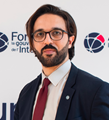 Samih Souissi is currently the chief of staff of the expertise department of ANSSI (the French cybersecurity agency). One of his missions is to coordinate ANSSI’s work on the transition to PQC. Before joining ANSSI, he was a policy maker at Arcep (the French telecom regulator) working on Open Internet issues. Prior to that, he worked as a cybersecurity consultant and a research engineer. Besides, he is involved in various bodies, as a member of the scientific council of Afnic (the French NIC) and the scientific committee of Internet Society France. Samih holds a MSc in engineering and a PhD in computer science and networks specialised in cybersecurity from Telecom Paris. He is also a graduate of University of London-LSE in international relations.
Samih Souissi is currently the chief of staff of the expertise department of ANSSI (the French cybersecurity agency). One of his missions is to coordinate ANSSI’s work on the transition to PQC. Before joining ANSSI, he was a policy maker at Arcep (the French telecom regulator) working on Open Internet issues. Prior to that, he worked as a cybersecurity consultant and a research engineer. Besides, he is involved in various bodies, as a member of the scientific council of Afnic (the French NIC) and the scientific committee of Internet Society France. Samih holds a MSc in engineering and a PhD in computer science and networks specialised in cybersecurity from Telecom Paris. He is also a graduate of University of London-LSE in international relations.
 Nataliya Stanetsky is a Senior Program Manager at Google in the Android Ecosystem Trust & Engineering team. In this role, she leads programs around Device, Connectivity, and Apps safety evangelism, certifications, and other special programs. Nataliya has over 15 years of experience in the IT Security and Risk Management field. Before Google, Nataliya spent a number of years in IT Security at L’Oréal and Big 4 Consulting firms.
Nataliya Stanetsky is a Senior Program Manager at Google in the Android Ecosystem Trust & Engineering team. In this role, she leads programs around Device, Connectivity, and Apps safety evangelism, certifications, and other special programs. Nataliya has over 15 years of experience in the IT Security and Risk Management field. Before Google, Nataliya spent a number of years in IT Security at L’Oréal and Big 4 Consulting firms.
Vera Stavroulaki is a technology developer and Co-founder of WINGS ICT Solutions. She has 20 years of experience, working on the design and development of intelligent cloud-based IoT applications and data platforms in various vertical domains and Digital Twin solutions. She has actively participated in EU funded research projects of the FP7/ICT, FP6/IST and FP5/IST frameworks and is currently involved in various H2020 projects. She is the Project coordinator of the H2020 DEDICAT 6G and the JU SNS CONFIDENTIAL6G projects. She has served as a co-coordinator of the IERC AC3 “IoT innovation and pilots” and as a Rapporteur of the Technical Report ETSI TR 102 684 “Reconfigurable Radio Systems (RRS); Feasibility Study on Control Channels for Cognitive Radio Systems”. She has authored more than 100 publications in international journals and refereed conferences.
 Thorsten Stremlau is a Distinguished Engineer and Systems Principal Architect in NVIDIA. He is responsible for technical strategies for components, devices, software and cloud services. In this role, Thorsten identifies and drives integration of current and future technologies, integrating them into the product development processes, and specifically drives innovation into the security capabilities of NVIDIA’s portfolio.
Thorsten Stremlau is a Distinguished Engineer and Systems Principal Architect in NVIDIA. He is responsible for technical strategies for components, devices, software and cloud services. In this role, Thorsten identifies and drives integration of current and future technologies, integrating them into the product development processes, and specifically drives innovation into the security capabilities of NVIDIA’s portfolio.
 Nicolas Stricher leads a team of Check Point Sales Engineers specializing in Managed Services Providers throughout EMEA. As a member of Check Point's office of the CTO evangelist group, he also serves as a Trusted Advisor to a wide audience from engineers to C-Level executives. Prior to joining Check Point in 2023, Nicolas held cybersecurity advisory and expert roles for McAfee (now part of Trellix), LogRhythm, Sophos, and CA Technologies (now part of Broadcom). He holds a Master’s degree in Human Computer Interaction from the University of Paris-Saclay.
Nicolas Stricher leads a team of Check Point Sales Engineers specializing in Managed Services Providers throughout EMEA. As a member of Check Point's office of the CTO evangelist group, he also serves as a Trusted Advisor to a wide audience from engineers to C-Level executives. Prior to joining Check Point in 2023, Nicolas held cybersecurity advisory and expert roles for McAfee (now part of Trellix), LogRhythm, Sophos, and CA Technologies (now part of Broadcom). He holds a Master’s degree in Human Computer Interaction from the University of Paris-Saclay.
Nicole van der Meulen is cybersecurity innovation lead at AURF. Previously she worked as a Senior Strategic Analyst and Head of the Strategy & Development team at the European Cybercrime Centre (EC3) at Europol. She also held a variety of posts in the area of cybercrime and cybersecurity at the Dutch Banking Association, RAND Europe, VU University Amsterdam and the Dutch Ministry of Security & Justice. She holds a doctorate in law from Tilburg University and a master’s degree in political science with specialisations in comparative politics and international relations from VU University Amsterdam. Her primary publications deal with digital identity theft and cybersecurity policy.
 Rob van der Veer is an AI pioneer with 32 years of experience in the AI field, specializing in AI engineering, security, and privacy. He is the lead author of the ISO/IEC 5338 standard on AI lifecycle, contributor to OWASP SAMM, co-founder of OWASP's digital hub for security standards OpenCRE.org, and creator of the OWASP AI Exchange – open-sourcing the global discussion on AI security. As the official liaison officer, Rob is bringing OWASP's work into international standards by ISO/IEC and CEN/CENELEC - the latter for the AI Act. At Software Improvement Group, Rob is Senior principal expert on AI, security, and privacy, working with organizations worldwide on these topics.
Rob van der Veer is an AI pioneer with 32 years of experience in the AI field, specializing in AI engineering, security, and privacy. He is the lead author of the ISO/IEC 5338 standard on AI lifecycle, contributor to OWASP SAMM, co-founder of OWASP's digital hub for security standards OpenCRE.org, and creator of the OWASP AI Exchange – open-sourcing the global discussion on AI security. As the official liaison officer, Rob is bringing OWASP's work into international standards by ISO/IEC and CEN/CENELEC - the latter for the AI Act. At Software Improvement Group, Rob is Senior principal expert on AI, security, and privacy, working with organizations worldwide on these topics.
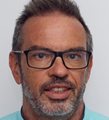 Eric Vetillard - Lead Certification Expert at ENISA, in charge of developing the EU cybersecurity certification scheme for cloud services (EUCS) and of preparing the work for the certification of European Digital Identity Wallets. Before ENISA, Eric held various positions in the industry, mostly around automated reasoning, smart cards and mobile security. He holds a Ph.D. from the University of Aix-Marseille.
Eric Vetillard - Lead Certification Expert at ENISA, in charge of developing the EU cybersecurity certification scheme for cloud services (EUCS) and of preparing the work for the certification of European Digital Identity Wallets. Before ENISA, Eric held various positions in the industry, mostly around automated reasoning, smart cards and mobile security. He holds a Ph.D. from the University of Aix-Marseille.
 Joanne Walker - I'm a researcher at BT Group. I was initially interested in writing AI algorithms to detect nuisance calls but then became interested in the emerging problem of technology facilitated domestic abuse. I found that I was very interested in how consumers could be protected from this emerging risk through coercive control resistant and trauma informed design. I am studing an MA in Psychodynamic Counselling and Psychotherapy at the University of Essex alongside my research. I use my experience in this area and training in psychotherapy to help understand the experience of customers in this situation, and to bridge the gap between technology and psychology to explore the societal impact of new telecommunications technologies in this space
Joanne Walker - I'm a researcher at BT Group. I was initially interested in writing AI algorithms to detect nuisance calls but then became interested in the emerging problem of technology facilitated domestic abuse. I found that I was very interested in how consumers could be protected from this emerging risk through coercive control resistant and trauma informed design. I am studing an MA in Psychodynamic Counselling and Psychotherapy at the University of Essex alongside my research. I use my experience in this area and training in psychotherapy to help understand the experience of customers in this situation, and to bridge the gap between technology and psychology to explore the societal impact of new telecommunications technologies in this space
 Laurence Wayne is a data scientist at BT Group Plc in the Cyber Security arm of the business after completion of higher education at Durham University; consisting of an undergraduate degree in geophysics & geology, then a masters in scientific computing & data analysis. With only recent involvement in various Standards boards across ETSI and 3GPP, he has been enabled a unique insight into the cutting edge of cybersecurity – taking stewardship of the 6G document in TC CYBER on laying the groundwork for this new technology. This is his first official contribution to the standards community; and feels immensely privileged to be learning from & working alongside those with a wealth of experience and knowledge in this area.
Laurence Wayne is a data scientist at BT Group Plc in the Cyber Security arm of the business after completion of higher education at Durham University; consisting of an undergraduate degree in geophysics & geology, then a masters in scientific computing & data analysis. With only recent involvement in various Standards boards across ETSI and 3GPP, he has been enabled a unique insight into the cutting edge of cybersecurity – taking stewardship of the 6G document in TC CYBER on laying the groundwork for this new technology. This is his first official contribution to the standards community; and feels immensely privileged to be learning from & working alongside those with a wealth of experience and knowledge in this area.
 Gill Whitney - I am currently working as an expert for ANEC (the European consumer voice in standardisation) on a number of standards focusing on CyberSecurity standards the needs of end users, including users with disabilities or special needs. I also act as visiting academic for Middlesex University, in this role I provide advice and information on the creation and use of cybersecurity and accessibility technical standards and laws. My expertise is in the area of Secure and Accessible ICT Systems. I have worked both as an independent consultant and as a project leader with partners including the UN Committee on the Rights of People with Disabilities, ISO, CEN/CENELEC, ETSI, BSI and European Academic Institutions. My work has included the authoring of Security and Accessibility standards and the creation of ambitious but practical training materials, including creation of ISO27001:2022 teaching material.
Gill Whitney - I am currently working as an expert for ANEC (the European consumer voice in standardisation) on a number of standards focusing on CyberSecurity standards the needs of end users, including users with disabilities or special needs. I also act as visiting academic for Middlesex University, in this role I provide advice and information on the creation and use of cybersecurity and accessibility technical standards and laws. My expertise is in the area of Secure and Accessible ICT Systems. I have worked both as an independent consultant and as a project leader with partners including the UN Committee on the Rights of People with Disabilities, ISO, CEN/CENELEC, ETSI, BSI and European Academic Institutions. My work has included the authoring of Security and Accessibility standards and the creation of ambitious but practical training materials, including creation of ISO27001:2022 teaching material.
Colin Whorlow, NCSC - Member of the Programme Committee
Colin Whorlow has worked in the UK National Cyber Security Centre (NCSC), and its predecessor CESG, for over 20 years. As Head of International Standards he has spearheaded NCSC’s active involvement in global security standards work including within ETSI and 3GPP. He convened the ETSI Quantum Safe Cryptography ISG, now a Working Group within TC Cyber, and has also chaired the group – and he is a Programme Committee member for the annual ETSI/IQC Quantum-safe Cryptography workshops. He also convened the ETSI Securing AI ISG, now TC SAI. Colin was a long-time member of the Management Board of ENISA, and is a former chair of the CCRA Management Committee. In previous roles he led CESG’s engagement on EU and NATO information assurance issues. Colin also chaired the Information Security Technical Working Group at the Wassenaar Arrangement for some years. Colin was awarded an OBE for services to National Security in 2024.
 Jintao Zhu is an expert of Huawei Cloud Core Network Research Dept. Currently, he focuses on next-gen communication security research, including digital identity, trustworhty AI, and privacy enhancement. In his previous career of Huawei, Jintao has worked in security research of 5G/5.5G, IoT, V2X, and edge computing, and he is experienced in standard and industry organistions such as IETF, 3GPP, CCSA, 5GAA, and 5G-ACIA.
Jintao Zhu is an expert of Huawei Cloud Core Network Research Dept. Currently, he focuses on next-gen communication security research, including digital identity, trustworhty AI, and privacy enhancement. In his previous career of Huawei, Jintao has worked in security research of 5G/5.5G, IoT, V2X, and edge computing, and he is experienced in standard and industry organistions such as IETF, 3GPP, CCSA, 5GAA, and 5G-ACIA.
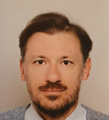 Piotr Zuraniewski, TNO - Piotr received his MSc degree in mathematics (Best Graduate Award) in 2003 from AGH, Poland, where he further worked as a research assistant, involved in several EU FP6/FP7 research projects. In 2011 he defended his PhD thesis entitled ‘Stochastic modelling and control of communication networks' at the University of Amsterdam. He now works as Senior Research Scientist at TNO, frequently playing a technical leader role in both research- and business-oriented projects. His research interests are programmable cloud infrastructures and their orchestration using AI, AI security (delegate to ETSI) as well as autonomous security response. Piotr is a co-author of several refereed scientific papers and regularly serves as a reviewer. He is also a former Cisco Academy Instructor and Cisco Certified Network Professional (CCNP).
Piotr Zuraniewski, TNO - Piotr received his MSc degree in mathematics (Best Graduate Award) in 2003 from AGH, Poland, where he further worked as a research assistant, involved in several EU FP6/FP7 research projects. In 2011 he defended his PhD thesis entitled ‘Stochastic modelling and control of communication networks' at the University of Amsterdam. He now works as Senior Research Scientist at TNO, frequently playing a technical leader role in both research- and business-oriented projects. His research interests are programmable cloud infrastructures and their orchestration using AI, AI security (delegate to ETSI) as well as autonomous security response. Piotr is a co-author of several refereed scientific papers and regularly serves as a reviewer. He is also a former Cisco Academy Instructor and Cisco Certified Network Professional (CCNP).
The ETSI Security Conference 2024 programme will be built by the following people:
- Samim Ahmadi, EY
- Charles Brookson, ZEATA Security
- Alex Cadzow, C3L
- Scott Cadzow, C3L
- Matt Campagna, Amazon Web Services
- Peter C, NCSC
- Mirko Cano Soveri, ETSI/3GPP
- Bjorn Fanta, Fabasoft
- Slawomir Gorniak, ENISA
- Alan Hayward, NCSC
- Holie Hennessy, OMDIA
- Alex Leadbeater,GSMA, Programme Committee Chair
- Tieyan Li, Huawei
- Gerry McQuaid, Ofcom
- Mats Naslund, NDRE
- Kim Nordstrom, ETSI
- Jean-Pierre Quémard, KAT
- Davide Pratone, Huawei
- Tony Rutkowski, CIS
- George Sharkov, European DIGITAL SME Alliance & SBS
- Nataliya Stanetsky, Google Ireland Limited
- Colin Whorlow, NCSC
- Alf Zugenmaier, NTT Docomo

 Sophia Antipolis, France
Sophia Antipolis, France